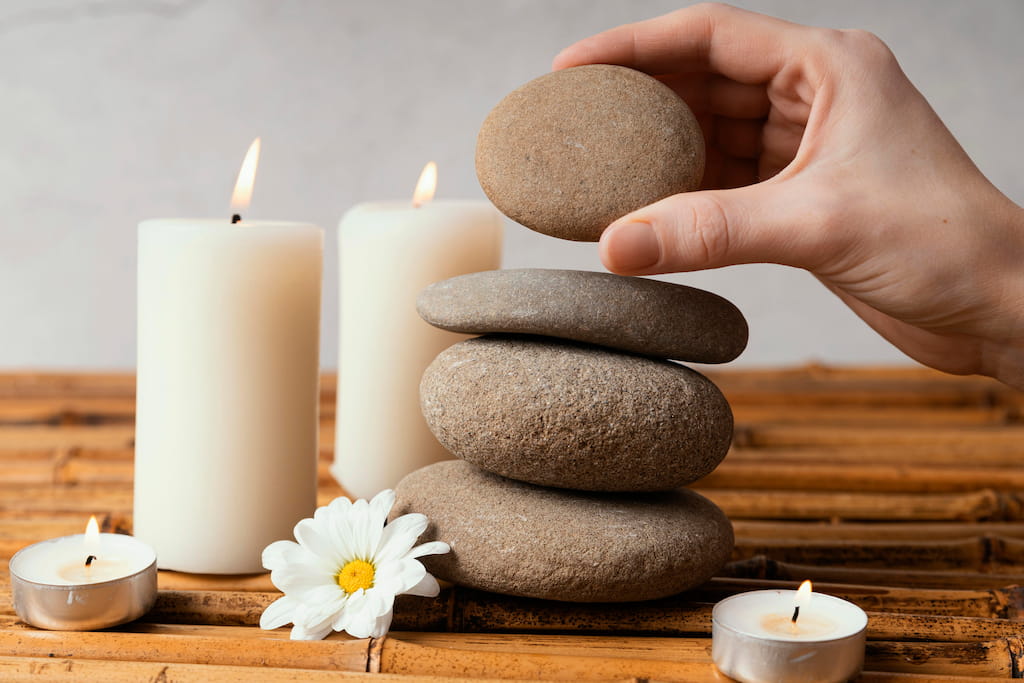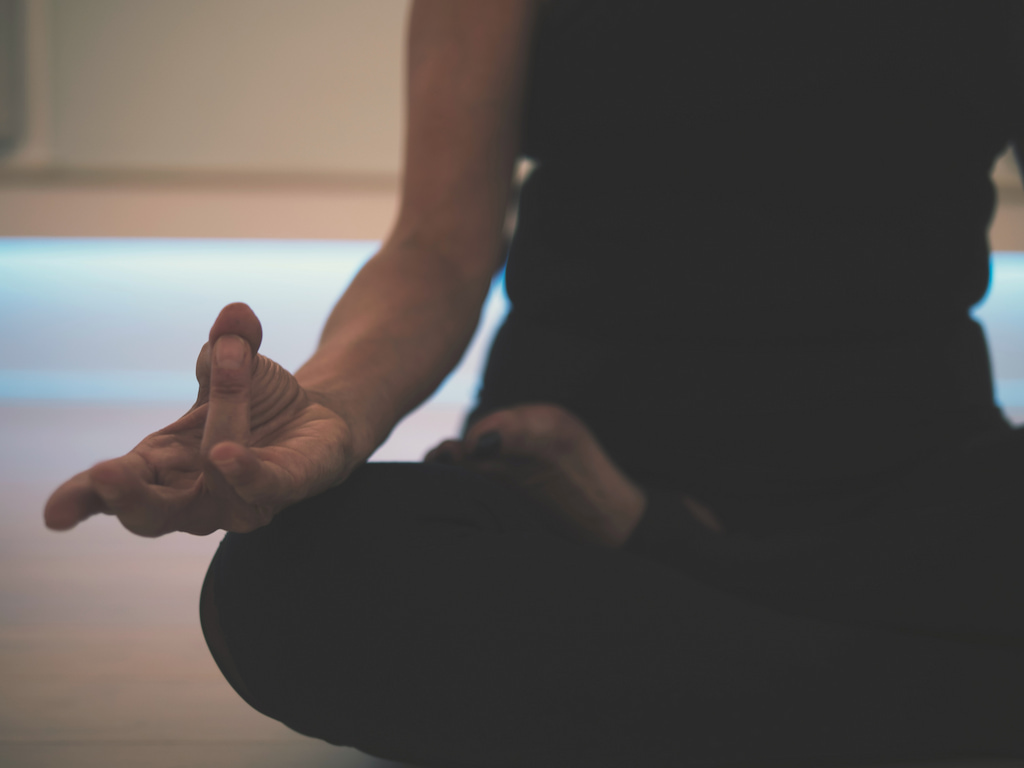What is Mindfulness Meditation and How Can We Practice It?

Content
What is mindfulness meditation?

“Mindfulness” and “meditation” are some of the most popular terms of recent times. There’s a wide variety of opinions and perceptions around these words and, beside the skepticism about whether or not meditation is based in science, many of us already have a specific image in mind when we think of meditation. We conjure a picture of someone sitting serenely in a cross-legged position, their hands resting on their knees as they chant “Om,” again and again. Day by day, we learn more about the concept of mindfulness and as we grow our knowledge of this concept, we may find that our judgments or preconceived notions about it tend to fall away. While many of us have started to practice mindfulness in our daily lives, it has also shown up in scientific research along with the ancient teachings in which it is rooted. There is an increasing number of empirical evidence showing that mindfulness helps to improve our coping skills when it comes to stress and paying attention.
While mindfulness refers to a theoretical concept such as being present in the moment, it is also a term used as a mental practice that enables us to look at life with non-judgmental acceptance by bringing our attention to the present moment and noticing what is happening in our environment, body, and mind. Mindfulness meditation, also known as “Vipassana meditation“, is just one meditation practice that facilitates an increase in awareness. Vipassana means seeing what is happening as it is. This definition is actually quite helpful when it comes to understanding mindfulness meditation, giving us insight into this practice that strengthens our ability to exist in the here and now by focusing on being present with our sensations and thoughts.
How do we practice mindfulness meditation?

You don’t actually need any equipment or previous experience with meditation to start practicing mindfulness. It is possible to experience it wherever you are simply by bringing your attention to the present moment. Some of the methods that can help you stay present are: focusing on your breathing, the sensations of your body, or noticing your thoughts as they pass through your mind. If you want, you can also bring your attention to the sounds, colors, and smells around you. By doing so, you gently invite your mind out of the past and future, grounding yourself the present. Over time and with practice, you’ll see that it gradually becomes easier to stay in the moment. You’ll begin to experience this effect not only when you’re meditating, but also when you’re not. With a life of mindfulness, the satisfaction you get from your daily activities and the acceptance and peace you experience will increase.
Benefits of Mindfulness Meditation
Coping better with stress
Mindfulness meditation is one of the methods that can help us cope better with stress. Stress, like any other emotion, is a very natural part of our lives. Because it is an unpleasant emotion, we may tend to suppress it, ignoring our stressors. However, through mindfulness practices, we can more easily navigate challenging emotions such as stress, learning to live with these emotions by refreshing our sense of calm and security. By recognizing the stressors in our lives, we can obtain resources and take steps to alleviate their effect.
Consistent quality sleep
Regular meditation not only makes it easier to cope with stress and anxiety but also helps you stay in the present moment, allowing you to fall asleep easily without getting caught up in thoughts that keep you awake at night. The impact of quality sleep can also be seen in your daily life when you have more energy to attend to your needs and responsibilities.
Healthy relationships and communication skills

Even if you’re practicing mindfulness meditation in a private space by yourself, you’ll notice its effect spreading throughout your life. The deeper into your practice you get, the more present you are, the more present you’ll be in your relationships. In the here and now, you’ll be able to feel the warmth of an intimate relationship or enjoy a fun conversation. As you observe your mind without judgment, you’ll be able to more clearly see how you react to different situations and people. This increased awareness will allow you to better understand yourself and the people you’re communicating with so that you can set healthy boundaries and articulate your needs.
Deeper focus
Our minds often get lost in thought and we may find ourselves ruminating over something that happened, making plans, or imagining our story in the future. It may be difficult to stay in the present moment and focus during the flow of daily life, especially when there are countless distractions these days. Just like a muscle that gets stronger as you work harder, our ability to stay present will grow as we practice, being patient and compassionate toward ourselves as we do so. Thus, we’ll be able to stay focused for longer and longer periods of time.
Acceptance
Unfortunately, not everything in life turns out the way we want it to and we experience this almost daily. Sometimes, it can bother us when a situation doesn’t go as planned and contrary to what many of us think, mindfulness meditation doesn’t insist that you be happy with everything that comes your way in life. In fact, keen self-awareness makes it easier to realize and ultimately accept the parts of yourself and your life that are challenging, uncomfortable, or upsetting. Mindfulness gives us the courage to investigate the sources of resistance within us and when you accept, say, that you have difficulties in times of change or that something is unpleasant, your ability to navigate the situation with compassion and care gradually increases. It is possible to have an accepting and balanced approach to life. When you accept life as it is, you’re giving yourself a break, allowing room for enjoyment despite life’s challenges.
Sleep Meditation

As was mentioned above, we often hear that meditation improves sleep quality. Meditation has positive effects on sleep quality both in the short and long term. In the short term, you can experience a smoother transition into sleep by practicing sleep meditation.
During the day, it’s sometimes easier to avoid anxiety-inducing thoughts, our daily tasks serving almost as a distraction. Whereas at night, it can be harder to fall asleep as anxious thoughts or worries begin to surface. With regular meditation practice you invite your mind, which is often stuck in the past or planning the future, to the present moment. Thus, it becomes possible to see and accept these uneasy thoughts swarming in your mind as soon as your head hits the pillow. In the long run, the restlessness that keeps you awake at night will leave you and in its place you’ll discover a restful and peaceful sleep thanks to your increased self-awareness.
1,3,5,10-Minute Mindfulness Meditations
Often, what we hear and say most when trying to form a habit is, “I don’t have time.” In general, if we’re starting something new, we sometimes want to dive right in full-throttle without missing a beat. For example, maybe we’re starting a new writing practice and we see the first step as following a strict regimen, writing for an hour every day. However, we usually do our best by starting at a slow and controlled pace. Thus, we progress while enjoying the process and getting to know ourselves, instead of feeling like a failure and choosing to quit when we fail to reach the high expectations we set for ourselves.
If you’ve got similar thoughts about starting meditation, whether it’s feeling like you don’t have the time, or feeling uncomfortable staying present with yourself and your mind, you can start off by meditating for just a few minutes. For example, on the first day, you can try a one-minute meditation and just feeling the effects of this 60-second practice will make it easier for you to step into a three-minute meditation next time. The day after, your willingness to devote some time to 5 minutes of mindfulness may arise naturally. Perhaps the time you devote to mindfulness meditation will increase up to ten minutes by the end of the week. Who knows? If you are new to meditation or returning to it after a long pause in your regular practice, it may not be easy to maintain a practice of meditation, especially during challenging moments. There are all kinds of coping mechanisms and strategies that many of us default to when we’re trying to navigate hardship. Although these may not be beneficial for us in the long run, they may be tools that we turn to by force of habit. Instead of starting with a 30-minute practice right away, taking baby steps and gradually increasing your pace along the way will help you adopt the understanding approach you need. You’ll establish this habit patiently and taking a few minutes to break up your busy day will be a great resource over time. Thus, mindfulness meditation turns into a safe strategy you can use to weather challenging times.
Guided Meditation

It’s not always easy to identify and name how we feel. Do you ever notice a feeling of being trapped or an indescribable uneasiness from time to time? In moments like this, you can allow a compassionate guide the chance to accompany you on your journey of listening to and understanding yourself. There are many guided meditations for those moments when you don’t want to be alone with yourself or it’s not possible to observe your mind in a calm manner. You just need to find a comfortable sitting position and create a serene space for yourself. You can choose a meditation practice that appeals to you from a wide variety of themes such as: self-compassion, acceptance, anxiety, and motivation. When you don’t feel like choosing one of those, you can try body scans or breathing exercises.
It’s important to remember that guided meditation can be for anyone, whether you’re new or a long time practitioner. Your mind will not behave the same way each time and even if meditation has been a part of your daily life for a long while, you may need guidance at times. You may crave support or guidance even in matters that you’ve been working on for a long time or feel quite competent in navigating. Just like in every aspect of life, whether it’s school, work, relationships, and more, you can also get support from a guided meditation from time to time. This guide can be a calming voice calling out to you from the meditation app, or it can be a peaceful song, or a cozy conversation with a loved one. You can experience the relaxing and refreshing effect of being alone with yourself, letting yourself be enveloped by the sound of the practice.
Meditation Music

There’s no need to describe music’s effect on us. Sometimes when words fail, music speaks. A song can evoke feelings that we cannot describe or take us on a journey to a very particular period in time. You can also experience music’s impact in your meditation practice. In addition to guided meditations, soothing music can also adapt to the flow of the mind and body in your moments of mindfulness. If you haven’t tried it yet, giving yourself to a beat you love while practicing mindfulness can be an experience you’ve never before imagined. It’s possible to meditate with sounds of nature such as wind, waves, and raindrops, as well as with rhythmic melodies. You can also create a calm and peaceful ambiance for your mindfulness practices with the soothing rhythms of instruments such as the kalimba, crystal bowl, or harp. This is a space and a moment just for you. You are free to incorporate things that make you feel good into this space as you like.
Meditation Books

Mindfulness is a concept based on ancient experiences and teachings. At the same time, it is a practice supported by many empirical studies detailing its effect on the body and mind. There are numerous sources about mindfulness that have inspired many psychotherapy methods, such as Mindfulness-Based Stress Reduction (MBSR) programs. Here are a few books that can serve as resources and will help you expand your knowledge as you deepen your mindfulness practice.
The first is the novel Siddhartha by the world-famous German writer Hermann Hesse. Siddhartha is a Sanskrit name that translates to “one who has accomplished a goal”. As you accompany Siddhartha on his adventures, you can invite an entirely new perspective of yourself and of life.
If you’re new to meditation, Jon Kabat-Zinn, founder of the Stress Reduction Clinic and the Center for Mindfulness in Medicine, Health Care, and Society at the University of Massachusetts Medical school wrote a book called Mindfulness for Beginners. His book summarizes the concept of mindfulness beautifully in clear and simple language and using a scientific approach.
While Kabat-Zinn may appeal to those of us accustomed to a Westernized perspective, Thich Nhât Hanh presents the concept of mindfulness to readers through the long-established perspective of the East with his book The Miracle of Mindfulness. Thich Nhât Hanh, a Vietnamese Zen master and peace activist, offers various methods of meditation in his book, which can be thought of as a kind of handbook for meditation.
The Power of Now by Eckhart Tolle has become one of the best-selling books that demonstrates the effects of focusing on the present moment in daily life. He expresses how our view of life can change as we incorporate mindfulness practices into our every day.
Finally, Sogyal Rinpoche’s The Tibetan Book of Living and Dying brings our focus back to various issues that we have taken for granted in the ancient teachings of Tibet. This text uses clear language to encourage us to continue questioning the many facts that have always been right in front of our eyes.
The above books approach the concept of mindfulness from different perspectives and unique narratives. I hope that reading, reflecting on, and questioning them will help you discover your own values in the flow of life as you stay present in the moment.
Meditation Apps
I’ve explained as best I could what mindfulness meditation is, its benefits, and how it can be practiced. If you’re wanting to hop into your practice now, there’s a home for you in Meditopia. In the app, you can read many informative blog posts on mindfulness and meditation, exploring new perspectives and gaining insight into countless topics in life. You can also choose from many guided meditations with Christine Taylor’s soft voice surrounding you with peace. If you’re feeling like you need to sit with yourself for a little bit, you can do this with various types of music and meditative sounds without any guidance. By participating in live challenges and meditating with hundreds of people from all over the world, you can fully experience the feeling of unity and belonging as well. I’m sure that taking some time for yourself every day, especially during intense and stressful days, will add zest and joy to every aspect of your life. You can also set a reminder for yourself to make a daily habit out of mindfulness practice.
Translator : Ebru Peközer


